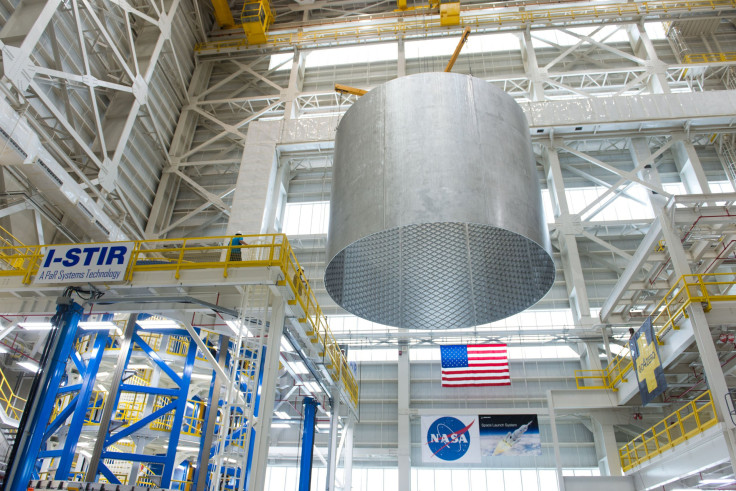NASA-Boeing Deal To Build Deep Space Mission Rocket Finalized: Construction To Begin Soon

Landing a human on Mars is now one step closer to reality. In a major boost to its attempts to carry out deep-space exploration, NASA finalized a $2.8 billion contract with the Boeing Co. (NYSE:BA) to build the Space Launch System rocket, or SLS, the Los Angeles Times reported.
The deal was finalized after NASA completed a critical design review, or CDR, of the SLS core stage. This is the first time since the heyday of the Saturn V -- operational from 1966 to 1973 and used in a number of moon missions -- that a launch vehicle has passed the CDR stage.
The U.S. space agency plans to use the SLS to eventually send astronauts beyond low Earth orbit, or LEO, using the spacecraft Orion, built by the Lockheed Martin Corp. (NYSE:LMT). The aim is to explore the deep reaches of space, including but not limited to near-Earth objects such as asteroids and Mars. Orion has the capability to carry as many as four astronauts on long-duration missions.
Boeing’s avionics team would soon commence work on two different versions of the rocket. One version would stand 321 feet tall and be capable of lifting 154,000 pounds to LEO, while the other version would stand 384 feet tall and be capable of lifting 286,000 pounds to LEO.
The initial test flight is scheduled to launch at Cape Canaveral, Fla., in 2017. If the first mission carrying an empty Orion capsule is successful, a second, manned mission is expected in 2021.
The announcement of the contract comes at a time when NASA’s plan to launch a mission to a near-Earth asteroid by mid-2020s has failed to garner much support -- or funding. According to the L.A. Times, the U.S. Government Accountability Office identified funding as a top risk for the program in a risk-assessment study it conducted.
Moreover, the SLS program has its fair share of detractors. The Space Frontier Foundation, a frequent NASA critic, told the L.A. Times the SLS was “built from the rotting remnants of leftover congressional pork.”
However, Frank McCall, Boeing’s deputy program manager for the mission, said the SLS had the potential to be “inspiring for generations.”
© Copyright IBTimes 2024. All rights reserved.






















